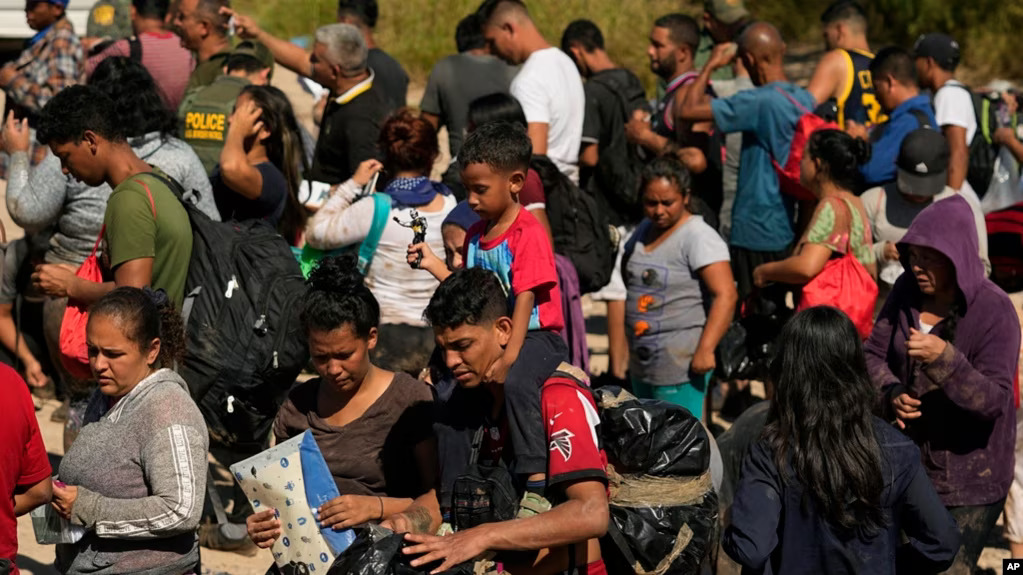WASHINGTON DC: U.S. President Joe Biden and former President Donald Trump are both heading to the U.S.-Mexico border this week, focusing immediate attention on the ongoing illegal migration of tens of thousands of people into the United States.
Illegal migration is a contentious issue that is certain to be a focus of debate in the November national election.
Biden and Trump have been sparring with each other over immigration rules from a distance at campaign rallies in different states, each blaming the other for the influx of migrants.
But on Thursday, they will be about 500 kilometers (311 miles) away from each other, with Biden headed to Brownsville, Texas, to meet with U.S. Border Patrol agents, law enforcement and local leaders and Trump headed to Eagle Pass, Texas, one of the most dominant migrant entry points.
Trump and Biden have each sought to stake claims that he is, or will be, the tougher chief executive on controlling migration over the new presidential term that starts next January.
Trump in his successful 2016 run for the presidency claimed he would build a border wall and make Mexico pay for it. Part of it was built during his presidency, but none of it was paid for by Mexico.
At one point, he sanctioned the separation of parents from their children as they tried to enter the U.S., but in the outcry that ensued he abandoned the effort.
In his successful 2020 campaign against Trump, Biden said he would adopt more humane migration policies, but now, with thousands of migrants arriving every week at the border, he has been forced to move toward tougher controls.
Biden said he would support a bipartisan proposal in the Senate for new immigration rules, but the legislation was doomed when Trump said it was not tough enough. Any Republicans who at first were inclined to support it quickly backed away from the measure, at Trump’s behest.
Now, Biden says he may sign an executive order on immigration, but an executive order does not have the same force of law as legislation approved by Congress and almost certainly would be challenged in lawsuits by pro-immigration groups.
(VOA/Reuters)








Comment